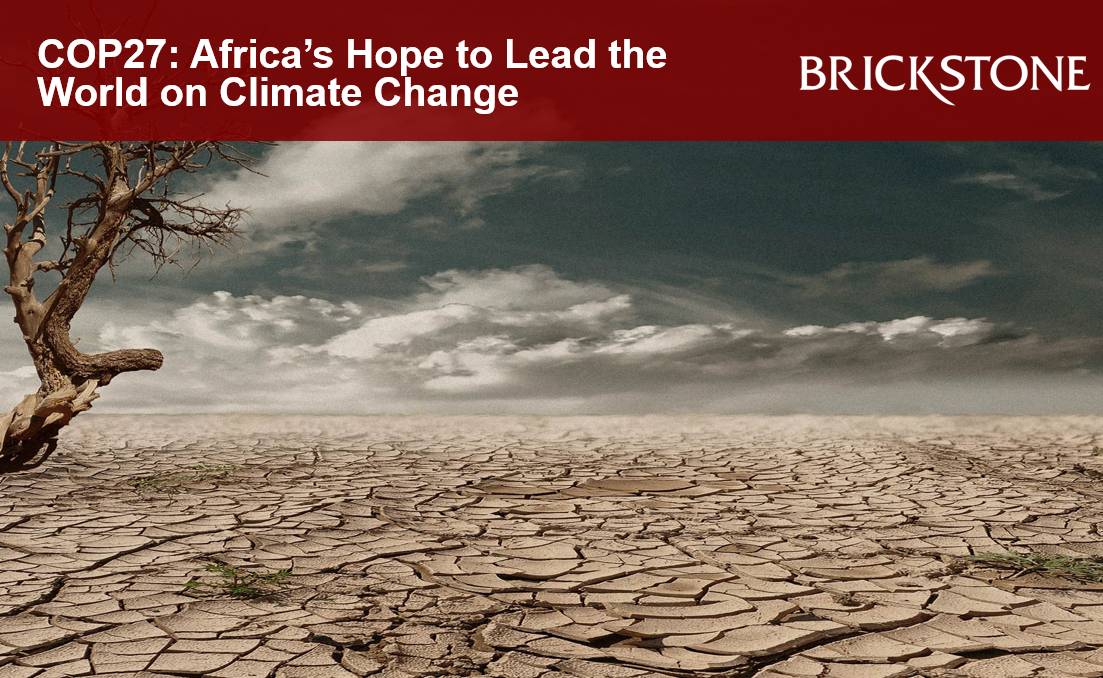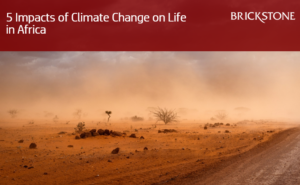COP27: Africa’s Hope to Lead the World on Climate Change
The 2022 United Nations Climate Change Conference or Conference of the Parties of the UNFCCC, more commonly referred to as COP27, was the 27th United Nations Climate Change conference, held from 6 November until 18 November 2022 in Sharm El Sheikh, Egypt.
Set to build on previous successes and serve as an opportunity for stakeholders to effectively tackle the global challenge of climate change and pave the way for future ambition, the COP27 is dubbed “The African COP”, not just because of the location where it’s taking place, but also because world leaders are gathering with a clear focus on seeking solutions for countries in the Global South — in particular in Africa. Hence, the COP27 serves as an opportunity for African leaders to voice their unique needs in the climate crisis.
This article by Brickstone reviews some institutional reports and publications on COP27, and its hope for the African continent.
COP27 and Climate Change in Africa
Climate change currently represents a major challenge in the world today, as it threatens the lives and livelihoods of over 100 million in extreme poverty. According to The Commonwealth, African countries contribute only 3 per cent to greenhouse gas emissions but suffer disproportionately from its negative impacts, posing risks to her national economies, financial markets, infrastructure investments, water and food systems, public health, agriculture, and livelihoods at large.
The disproportionate responsibility placed on Africa, which contributes less than 4 percent of the world’s energy-related emissions but faces serious consequences to the lives and livelihood of its people, cannot be described as anything but climate injustice.
Africa today loses between $7 billion and $15 billion a year to climate change. And with no collective and drastic actions taken, the loss is projected to reach $50 billion a year by 2030.
Tackling climate change will require the most significant political, social and economic effort that the world has ever seen. It is up to us to set the tone and shape the quality of that effort.
Accordingly, the continent doesn’t have access to the financing it needs to adapt to climate change and meet nationally determined contributions. By 2030, Africa will need between $1.3 to $1.6 trillion. Although the previous international climate summit, COP26, made some progress, there was yet little progress on creating a fund to deal with permanent losses and damages caused by climate change.
However, COP26 did lay the ground for 2022 to be the year that Africa changes this course. According to AllAfrica, COP27 will be held on African soil and provides the opportunity for the continent to ensure that the needs of the climate vulnerable – rather than the interests of rich, polluting nations – are met. This can finally be the time that rich nations cough up the lifesaving cash that is essential to help vulnerable communities adapt to a changing climate.
From building the right infrastructure, to creating early warning systems for extreme weather, to providing people with drought resistant crops, the adaptation needs of countries in Africa and elsewhere in the Global South are vast and only growing the longer we delay. $100 billion a year of climate finance needs to be the start of the financial flows that must begin moving from the Global North to the Global South to deal with the climate emergency.
African governments are keen to use the COP27 to ensure that they actually receive financing towards helping them meet their climate goals as the Egypt’s COP27 Presidency is committed to ensuring that no one is left behind.
Read more here.






